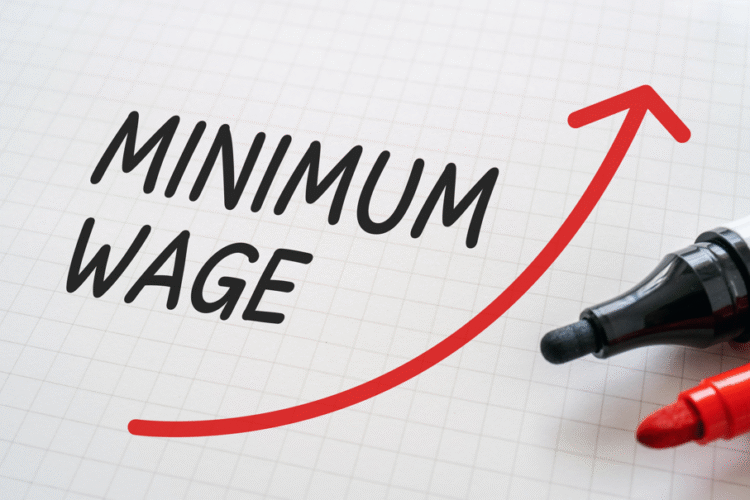The Government has announced an inflation-busting increase to the minimum salaries employers must pay their workers, ahead of today’s Budget.
These increases, particularly for younger workers, have been criticised as potentially impacting employment rates.
From April next year the National Living Wage, paid to workers over the age of 21, will rise by 4.1 per cent to give an hourly rate of £12.71. The National Minimum Wage, paid to workers between 18 and 20 will rise by 8.5 per cent to £10.85 an hour.
There has also been an increase to minimum rates paid to 16-18 year olds and apprentices: up 6 per cent to £8 an hour.
The government says these increases will help lower-paid workers with rising living costs, and are part of a wider strategy to merge these different bands.
However there have been criticism about the impact of this latest jump in employer costs. The Resolution Foundation said the increase for younger workers, in the 18-to-20 year bracket, was “unnecessarily big and could make it harder for people of this age group to find a job”.
These increases come after significant rises to both the national minimum and living wages last year, and an increase in employers’ national insurance rates, levied on salaries. Since 2020 the National Living Wage has increased by 46 per cent and the National Minimum Wage by 68 per cent.
Employee benefits specialist Steve Herbert says: “This is another big cost increase for employers, particularly in marginal sectors. Pay differentials are also an issue, forcing employers to reconsider those grades further up the scale.”
He adds: “Whilst [these increaes] will help those in work it will not encourage employers add more jobs. This seems to be an own goal in a rather stagnant economy which desperate needs growth.”
Standard Life retirement savings director Mike Ambery adds: “These will offer much-needed relief to low earners, many who are still struggling with persistently high living costs. But for businesses, however, the above-inflation rise will likely add further pressure on those still managing the impact of last year’s Budget announcements which raised the cost of employment.”
However, Ambery adds that this could beyond the immediate pay boost, the increase also brings a longer-term advantage for savers through higher workplace pension contributions.
“While day-to-day expenses remain a priority for low earners, even modest savings through auto-enrolment can make a meaningful difference at retirement.”












